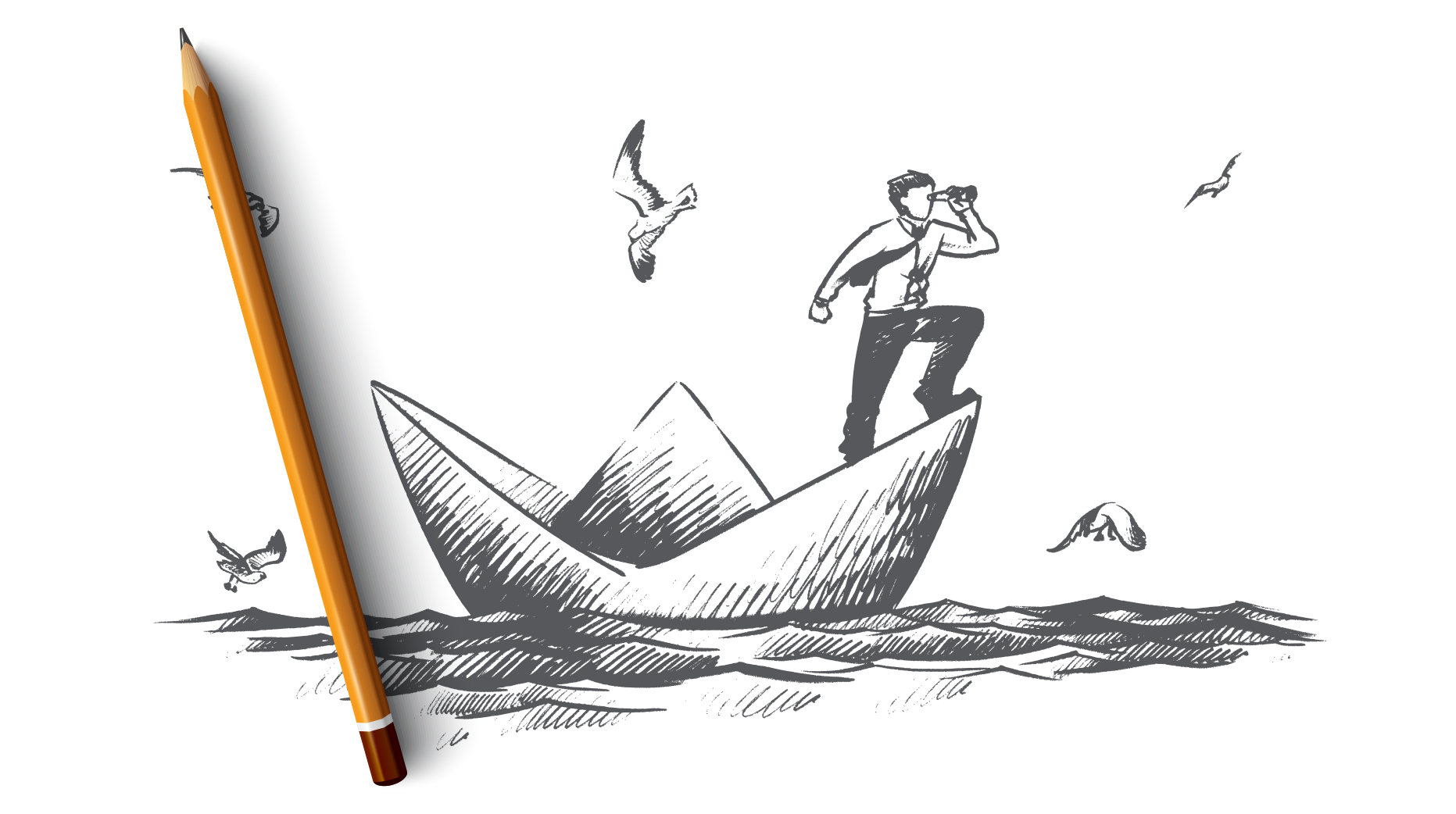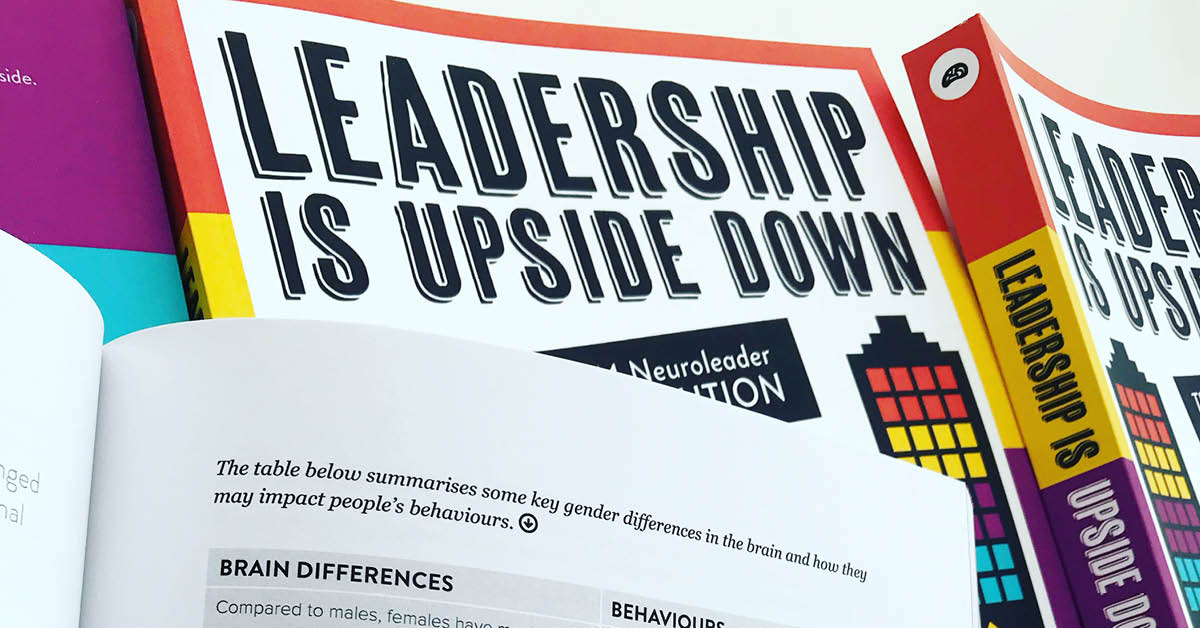A New Leadership Model For The VUCA World
Einstein is famous for his saying that the definition of insanity is doing the same thing over and over again and expecting different results. Yet some of the smartest people in our businesses do exactly this. When it comes to leadership training, we have learnt very little. For the most part it just doesn’t work very well and arguably never has.
Leadership development is generally predicated on ‘Industrial Age’ thinking, where people (neatly labeled as human ‘resources’) are ‘trained’ so that they can become better cogs in a more efficient machine. It’s essentially born from the factories and widgets era.
True, some approaches are better and cater for a more flexible organisational model. These are the programs for the ‘Information Age’. They differentiate between the manager and leader, encourage us to develop multiple intelligences (such as EQ and SQ) and embrace 360-degree feedback models that help us to grow individually and contribute to high performance teams.
Progress? Perhaps. But look a little deeper into many contemporary organsations and you will see that such approaches often sit on top of a leadership model that remains, at its heart, Command and Control. That’s OK if you are running the fire brigade, but not so good if you are looking to get ahead in the VUCA world of Volatility, Uncertainty, Complexity and Ambiguity that most of us find ourselves in today.
If everything has changed it makes sense that so too must our approach to developing leaders. In the following  , 'Building Leaders for the Imagination Age: The Case for the i4 Neuroleader Model', strategist & talent expert Katharine McLennan outlines what this needs to look like.
, 'Building Leaders for the Imagination Age: The Case for the i4 Neuroleader Model', strategist & talent expert Katharine McLennan outlines what this needs to look like.
3 Key Takeouts From This Great White Paper
1. We now live in the Imagination Age
Whilst control of physical assets and access to information are helpful to a successful strategy, they are no longer sufficient to create value sustainably. A third element is required - the “asset” of creativity. This requires organisations to be nimble, courageous and forgiving. They are places where ANYONE can and, in fact, must be a leader (now, defined as a ‘creator’).
Teams and companies come together from all over the world, coordinating virtually to accomplish things we would never have dreamed of even a decade ago. They disband just as rapidly to re-form in another geography for another project. Each person must lead the group around them through different elements of personal power. These are less governed by their hierarchy on an org chart but than by the influence of their idea.
When we think of all of the smart business stories making the headlines, Tesla’s new cars and home-batteries, Uber, Airbnb, Atlassian…… they are clearly exploiting this new paradigm. At the same time, the majority of businesses struggle to adapt.
They cry ‘foul’ as they see old markets, built over decades, destroyed in months by the guys who are already ‘Imagination Age-ready’ and have built the right people skills and cultures to thrive amongst the chaos.
2. We need to build new skills, attitudes & competencies for our leaders
A leader will now be responsible for coordinating the big picture and contracting a wide range of independent workers and consortiums to deliver on it. They will need to develop superior skills of innovation. Successful leaders will master the art of collaboration, connecting independent performers into networks focused on specific goal accomplishment.
These leaders will know how to influence rapid waves of innovation. As with the pioneers of ancient times, the agility to adapt to meet the unexpected will be critical. The leader who is in the highest health of mental fitness – performance — will succeed.
These are different skillsets to those found in many organisations – especially at senior managerial and leadership level.
Expertise and experience are still important, but the new attributes demanded for success in the Imagination Age are alien and – problematically for many – more likely to be found in the most junior levels of a business.
3. The i4 Neuroleader Model helps to bridge this gap
The About my Brain Institute’s i4 Model, created by Leadership Expert Silvia Damiano, is designed to identify and meet the needs of this 21st Century leader. The model shows how leaders can (and must) develop their mental fitness to Perform create the Collaboration framework to get the best from constantly changing groups, the Innovation required to determine where growth can occur and the Agility to weave strategy and implementation together in interacting fields of learning.
The 4 Key Competencies For The 21st Century Leader
Strategy, execution, coordination, and self-development are and always will be the primary components of a leader’s work.  research identifies the meta-competencies that are required to deliver these components at all levels of leadership complexity and for all organisational contexts. They are:
research identifies the meta-competencies that are required to deliver these components at all levels of leadership complexity and for all organisational contexts. They are:
1. Performance
Performance that fuels self-development so we can constantly expand our brain’s ability to create, find purpose, integrate our many lives and live according to principles and purpose by which we believe we are called.
With the rise in neuroscience and the recall of our thousands-year-old wisdom of what it takes to discipline our mind, we can now expect our leaders to be as mentally, physically and emotionally ready as we would an Olympic athlete.
Read more on Performance!
---
2. Collaboration
Collaboration that fuels coordination across every-changing boundaries. Where authority to one fixed manager no longer applies in our ever-changing virtual teams, and shifting functional lines.
Where we are all called to collaborate in the moment, rolling our sleeves to think new thoughts and see new paradigms together. A new form of communication that transcends ‘top down’. Generosity and courage will be necessary to inspire people to work with us when they don’t have to.
Read more on Collaboration!
---
3. Innovation
Innovation that fuels strategy as ‘last year plus a bit’ thinking is no longer sufficient. We need constantly new ideas to respond to a world that is no longer turbulent (the world after 2008), but continually disruptive.
Strategy based on stagnant 5-10-year analyses of markets, products and competitors no longer suffices. We must call forth an ability to imagine, a curiosity that will energise our people, a drive that will keep them going and an attitude that will expect failure and success in a world in which we are constantly experimenting.
Read more on Innovation!
---
4. Agility
Agility that fuels execution in this new disruptive world forces us to learn a new way of implementing. Ironically, the world’s best armies that gave us hundreds of years of command and control, are now teaching us what it takes to act with agility.
Armed with technology that puts the intelligence in the field, the field force becomes as important as the brass in back in Headquarters in forming the strategy. The plan must constantly evolve as the awareness of requirements builds and then must be adapted to be deployed effectively at all levels.
Influence up, down, across and diagonal must be used as the intelligence flows in all directions. Intuition from the gut must be trusted so that we are not overwhelmed by the overabundance or absence of data.
Read more on Agility!
---
Turning Awareness Into Results
The  goes on to unpack each of the 4 Competencies into 16 pillars that form a learning curriculum for today’s leaders. This enables the constituent parts of each competency to be understood, awareness of an individuals strength (or weakness) in them assessed and steps put in place to develop them.
goes on to unpack each of the 4 Competencies into 16 pillars that form a learning curriculum for today’s leaders. This enables the constituent parts of each competency to be understood, awareness of an individuals strength (or weakness) in them assessed and steps put in place to develop them.
We’ve reached a tipping point - we now need Neuroleaders.
In the last 6-12 months I believe we have reached a tipping point. From my work with organisations in multiple sectors in Australia, I know that many are now directly experiencing the full impact of the VUCA world. No longer protected by a resources boom, low levels of productivity, competitiveness and innovation are now exposed.
Slow to change, many leaders I work with now realise that they need to make wholesale changes in their business models, cultures and – most importantly, people. We have indeed moved into the Imagination Age – with all of the challenges AND opportunities that presents.
One thing is certain...
What got us here, ain’t gonna get us there.
We need to reassess what we want from our leaders and take urgent steps to find, grow or re-educate our people. I believe that the  and the Curriculum of the About my Brain Institute is a good place to start.
and the Curriculum of the About my Brain Institute is a good place to start.
- i4 Neuroleader (353)
- Leadership & Culture (336)
- Brain Health & Wellbeing (206)
- Innovation (97)
- Performance (85)
- Our News (79)
- Collaboration (68)
- Agility (53)
- Practitioner Stories (44)
- In The Press (36)
- Make Me A Leader (33)
- Balance (31)
- Integration (30)
- Imagination (29)
- Awareness (23)
- Brain-Friendly Channel (22)
- Brain-Friendly Leadership (22)
- Communication (22)
- Curiosity (21)
- Inspiration (19)
- Intuition (19)
- Attitude (17)
- Courage (16)
- Adaptability (14)
- Case Studies (14)
- Drive (14)
- Generosity (13)
- Ethics (9)
- Mental Readiness (9)
- Influence (8)
- Retreat (8)
- Brain-Friendly Leadership (1)
- Oracle Cards (1)
- 1 November 2025 (2)
- 1 September 2025 (3)
- 1 August 2025 (5)
- 1 July 2025 (5)
- 1 June 2025 (2)
- 1 April 2025 (1)
- 1 March 2025 (8)
- 1 February 2025 (3)
- 1 September 2024 (4)
- 1 July 2024 (2)
- 1 June 2024 (6)
- 1 May 2024 (2)
- 1 April 2024 (3)
- 1 March 2024 (1)
- 1 November 2023 (1)
- 1 August 2023 (1)
- 1 July 2023 (2)
- 1 June 2023 (2)
- 1 May 2023 (4)
- 1 April 2023 (2)
- 1 March 2023 (7)
- 1 February 2023 (4)
- 1 January 2023 (1)
- 1 September 2022 (1)
- 1 May 2022 (3)
- 1 April 2022 (1)
- 1 March 2022 (5)
- 1 February 2022 (4)
- 1 January 2022 (4)
- 1 December 2021 (2)
- 1 November 2021 (4)
- 1 October 2021 (3)
- 1 September 2021 (6)
- 1 August 2021 (1)
- 1 April 2021 (1)
- 1 December 2020 (2)
- 1 November 2020 (1)
- 1 September 2020 (1)
- 1 August 2020 (1)
- 1 July 2020 (3)
- 1 June 2020 (4)
- 1 May 2020 (3)
- 1 April 2020 (4)
- 1 March 2020 (6)
- 1 February 2020 (4)
- 1 January 2020 (2)
- 1 December 2019 (3)
- 1 November 2019 (3)
- 1 October 2019 (5)
- 1 September 2019 (4)
- 1 August 2019 (4)
- 1 July 2019 (4)
- 1 June 2019 (5)
- 1 May 2019 (9)
- 1 April 2019 (9)
- 1 March 2019 (8)
- 1 February 2019 (7)
- 1 January 2019 (8)
- 1 December 2018 (5)
- 1 November 2018 (10)
- 1 October 2018 (16)
- 1 September 2018 (9)
- 1 August 2018 (10)
- 1 July 2018 (9)
- 1 June 2018 (8)
- 1 May 2018 (9)
- 1 April 2018 (9)
- 1 March 2018 (9)
- 1 February 2018 (8)
- 1 January 2018 (8)
- 1 December 2017 (6)
- 1 November 2017 (9)
- 1 October 2017 (9)
- 1 September 2017 (8)
- 1 August 2017 (10)
- 1 July 2017 (8)
- 1 June 2017 (8)
- 1 May 2017 (9)
- 1 April 2017 (8)
- 1 March 2017 (6)
- 1 January 2017 (3)
- 1 December 2016 (4)
- 1 November 2016 (5)
- 1 October 2016 (4)
- 1 September 2016 (2)
- 1 August 2016 (4)
- 1 July 2016 (4)
- 1 June 2016 (2)
- 1 May 2016 (3)
- 1 April 2016 (3)
- 1 March 2016 (7)
- 1 February 2016 (2)
- 1 January 2016 (5)
- 1 December 2015 (2)
- 1 November 2015 (2)
- 1 October 2015 (4)
- 1 September 2015 (2)
- 1 August 2015 (2)
- 1 July 2015 (1)
- 1 June 2015 (3)
- 1 May 2015 (4)
- 1 April 2015 (5)
- 1 March 2015 (3)
- 1 February 2015 (3)
- 1 January 2015 (3)
- 1 December 2014 (3)
- 1 November 2014 (3)
- 1 October 2014 (3)
- 1 September 2014 (5)
- 1 August 2014 (4)
- 1 July 2014 (5)
- 1 June 2014 (3)
- 1 May 2014 (1)
- 1 March 2014 (1)
- 1 December 2013 (2)
- 1 November 2013 (1)
- 1 July 2013 (1)
- 1 June 2013 (1)
- 1 May 2013 (3)
- 1 April 2013 (1)
- 1 March 2013 (2)
- 1 February 2013 (1)
- 1 January 2013 (2)
- 1 November 2012 (1)
- 1 October 2012 (1)
- 1 September 2012 (1)
- 1 August 2012 (2)
- 1 July 2012 (1)
- 1 June 2012 (1)
- 1 May 2012 (2)
- 1 April 2012 (1)
- 1 February 2012 (1)
- 1 January 2012 (1)
- 1 November 2011 (1)
- 1 October 2011 (3)
- 1 September 2011 (2)
- 1 July 2011 (1)
- 1 June 2011 (1)
- 1 May 2011 (1)
- 1 April 2011 (1)
- 1 March 2011 (1)
- 1 February 2011 (2)
- 1 January 2011 (4)
- 1 December 2010 (4)
- 1 November 2010 (3)
- 1 October 2010 (5)
- 1 September 2010 (4)
- 1 August 2010 (4)
- 1 July 2010 (3)
- 1 June 2010 (4)
- 1 May 2010 (7)
- 1 April 2010 (5)
Subscribe by email
You May Also Like
These Related Stories

Leadership As A Solution To The Complexity Of Our Times

The Changing Face Of Leadership In The 21st Century - Where YOU Become The Superhero



No Comments Yet
Let us know what you think